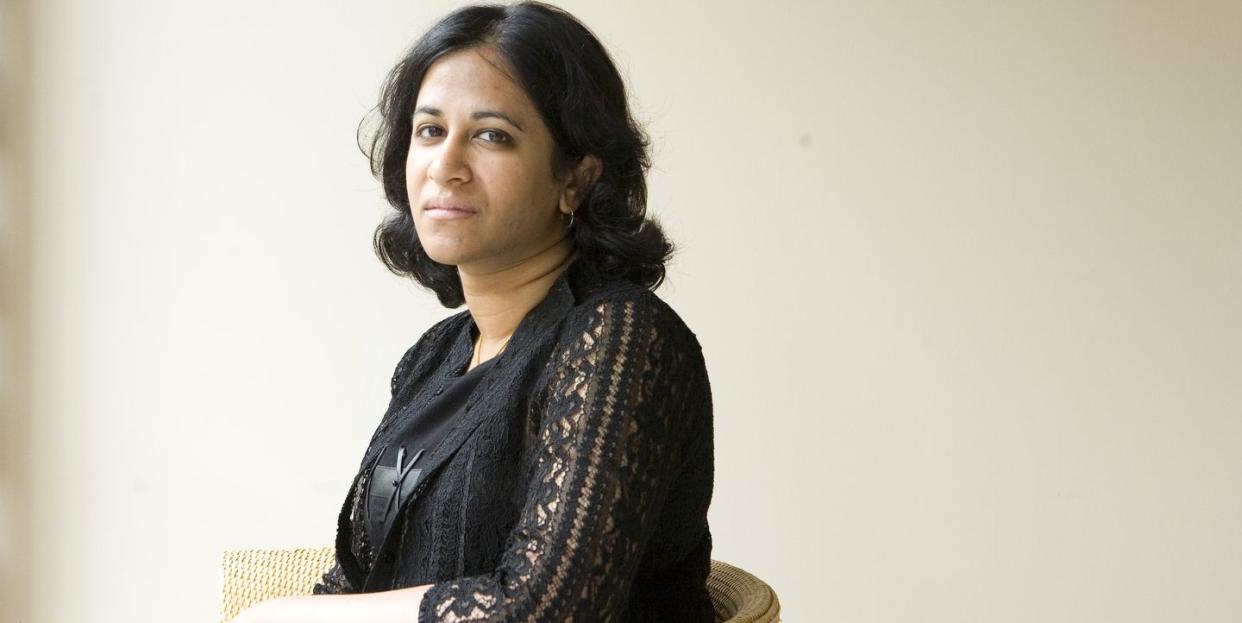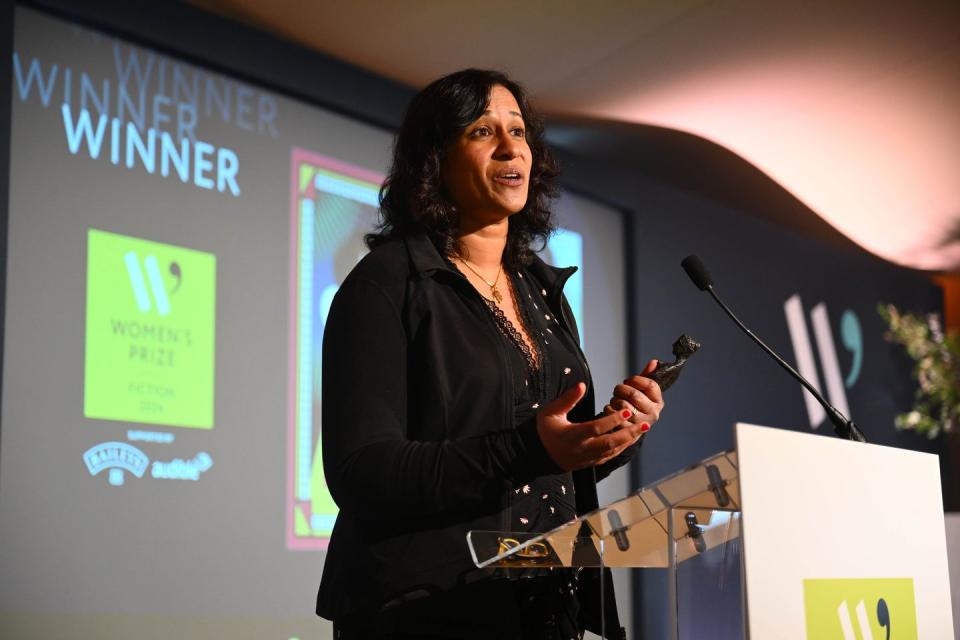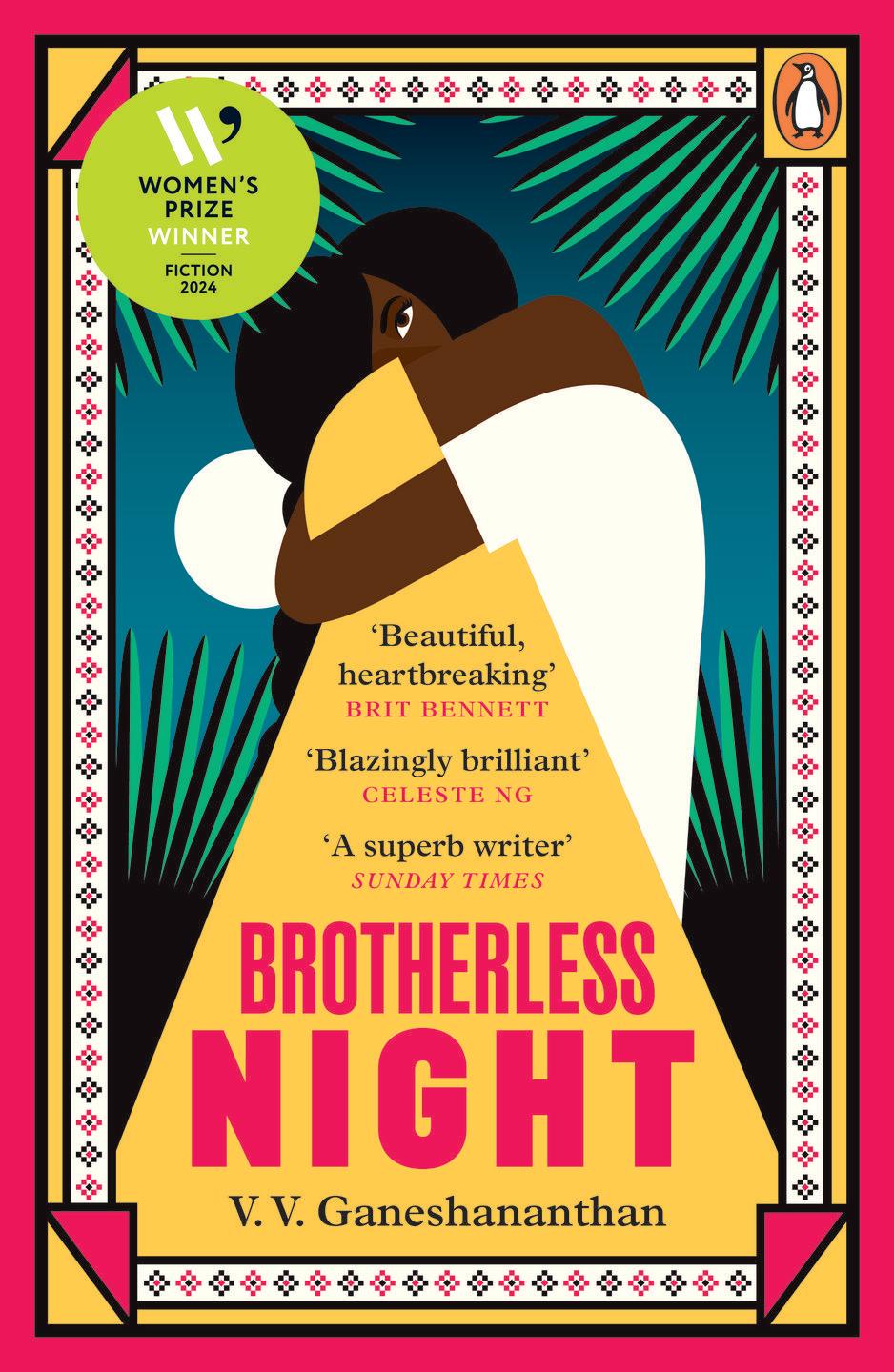"Writing is always political": V. V Ganeshananthan on winning the 2024 Women's Prize for Fiction

“Now that’s a question that needs more coffee,” says V. V. Ganeshananthan, with a tired smile. “Or maybe some therapy!” She rubs her eyes and laughs. It’s been a busy night for the author, who is speaking to me the morning after she scooped up the 2024 Women’s Prize for Fiction for her second novel, Brotherless Night.
I have asked where her characters come from, notably the vivacious protagonist of her winning novel, Sashi: a young Tamil woman dreaming of becoming a doctor when the Sri Lankan war breaks out. The conversation, even without the necessary caffeine (or licensed therapist) becomes a little esoteric.
“If you put enough work into the pages, they’re alive in a way that moves them forward almost without you,” she says. “ If you permit the pages to be alive in that way, you have to almost let go.”
As both an author and a teacher of creative writing, Ganeshananthan is unsurprisingly erudite about the art of creation. “I teach an MFA programme and I think people think that means we create some sort of false structure that you have to fake yourself,” she observes. “But the best workshop will teach you how to recognise your instincts and to trust them.”

Brotherless Night is a story whose pages did indeed lead Ganeshananthan – a story that demanded to be told over an incredible two decades. "I was really angry," she admits, about the driving force which kept her working on one novel for so long. In her acceptance speech, she jokingly thanked her agent for waiting 20 years for her second novel.
“There were a variety of things in the book that people had avoided or had discouraged discussion of,” she tells me. “I think I have a little bit of a contrarian streak, so if I’ve been told that it's not the thing to do, I go and do it.”
Ganeshananthan’s second novel does not shy away from the brutality of war, but its power lies in how equally unafraid it is of tackling its moral nuances. Chair of judges, Monica Ali, praised the author’s “commitment to complexity” and highlighted the novel’s “clear-eyed moral scrutiny”. Ganeshananthan tells me she that, though she still wanted to be laser-focused on the experiences of Tamil civilian women, she also wanted to convey a plurality of viewpoints.
A key one is the labelling of violence and how this invariably shifts our perspective. The phrase ‘one man’s terrorist is another man’s freedom fighter’ has relevancy here, in a novel which deals in detail with civil war and the Tamil Tigers, yet does not go far enough to explain how weaponised words can be when it comes to violence. When atrocities are committed by governments, can they not be questioned? If you label someone a terrorist, does violence towards them become sanctioned and excusable?
“I also want to be critical of violence committed by non-state actors and ask questions about how that happens and why,” she says, noting that her preoccupation with this has only grown in relevance with each conflict, from the Arab Spring to Gaza. “But if you decide that you don't negotiate with terrorists, then the second that you call someone that, you conveniently don’t have talk to them anymore.”
Brotherless Night is, of course, also a love letter to women in warzones. Sashi becomes a medic during the war, but is also a documenter of atrocities. In her nonfiction, Ganeshananthan has written openly about the similarities she has seen in countless conflicts over the last 20 years and the Sri Lankan Civil War. In an op ed in 2022 for the LA Times, she compared the gatekeeping of memory in warzones by women in Ukraine – who are documenting war crimes – to the women of Sri Lanka.
“I think that the work of memory and archiving seem to often be things done by women,” she says, nodding to the female storytellers in her own Tamil family, and the many women she interviewed for the novel, who she feels indebted to. “They also have experiences we rarely see on the page. What does it mean to pack up your entire family and escape for your lives? What is involved in that? That is the work, so rarely seen in narrative, that women do.”

Her work has always weaved together the – she believes – inextricable forces of literature and politics. She hosts a podcast on this very subject, fiction/non/fiction, and her body of work in the last two decades, from essay to short story, has never strayed far from the blurring of these two. “There's this this very old-school notion that writing shouldn't be political, and good luck to those people [who believe that],” she laughs. “Everything is political. It's always political. Either you can kind of look that in the face, or not, which doesn't seem that helpful. I don't think that the events of our lives are separate from politics, or history. Imagining them in that way is a little strange to me.”
Her win for Brotherless Night comes after her first novel, Love Marriage, was longlisted for the Women’s Prize back in 2008. She is overjoyed to have won because of what she sees as the continued vitalness of the award.
“I mean, I don't know how much of my work would have been seen or read, or taught or discussed, or reviewed without the Women's Prize,” she says. “To have a spotlight on your book for a second in this really difficult environment where many excellent books are not getting that attention, is so special.”
We discuss a point raised at the ceremony, which also saw Naomi Klein win the inaugural Women’s Prize for Nonfiction; that the latter category sees significantly lower advances for women and works authored by women take up a shockingly small section of the market.
“I think so frequently, women are not taken seriously. And then when I am taken seriously, I'm always a little taken aback,” admits Ganeshananthan. “I'm always surprised when I don't have to walk in the room and convince people I’m smart.”
Now, I suggest, she could just produce ‘Bessie’, as the Women’s Prize trophy is affectionately known. “Oh, I should!” she responds, laughing. “I’ll just slam her down on the table and say, 'If you have any questions, address them to Bessie'.”
You Might Also Like


